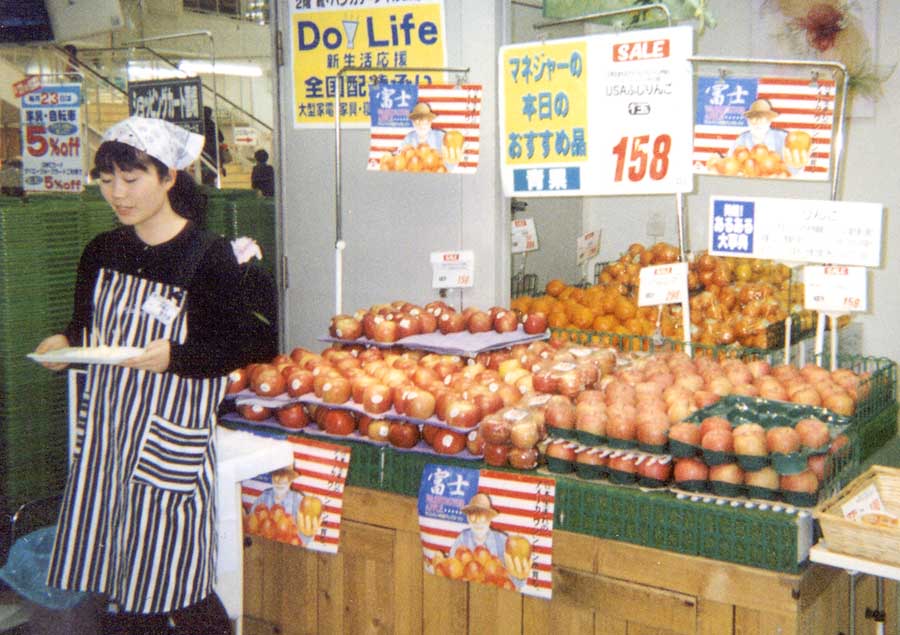
Washington apple samples from the 2000 harvest in Japanese retail stores in 2001, the last time U.S. apples were exported in Japan.(File photo courtesy Washington Apple Commission)
For the first time in 15 years, apple growers are pursuing exports to Japan.
The U.S. is the top food exporter to Japan, but apples haven’t been a big player. Northwest growers haven’t exported to Japan since the 2000-01 season, largely due to that country’s 17 percent tariff and the high cost of the export program.
Apples must be treated with a 55-day cold treatment and methyl bromide fumigation and inspected by Japanese officials prior to shipment.
Japan has identified codling moth as a quarantine pest of concern.
However, at least two growers this year have expressed interest in pursuing exports to Japan, and Japanese inspectors have made one visit to a packing house already, according to Northwest Fruit Exporters.
“These packers have taken the expense into account, and they’re willing to give it a try,” said Fred Scarlett, manager of Northwest Fruit Exporters. “Obviously, they think they can make some money doing it.”
Apple production has fluctuated and declined slightly in recent years in Japan, though it remains a top-20 producer globally at nearly 600,000 tons in 2013, according to the latest data from the World Apple and Pear Association. However, led by Japan’s own Fuji variety, apples are a premium product there, and the country’s farming lobby is strong.
Traditionally, Japanese retailers have wanted Washington apples to come in at a significantly lower price point, which was difficult to do under the constraints of the work plan, said Rebecca Lyons, international marketing director for the Washington Apple Commission.
“One thing that is interesting is that unlike many of the export markets, Japan is a developed market,” Lyons said. “They have consumers who can afford to buy the higher value out of Washington state.”
Meanwhile, U.S. industry groups are in the early stages of trying to develop a new systems-approach apple work plan with Japan that would not require fumigation. The last such plan among tree fruit, for cherries, took almost 12 years to finalize.
– by Shannon Dininny






Leave A Comment